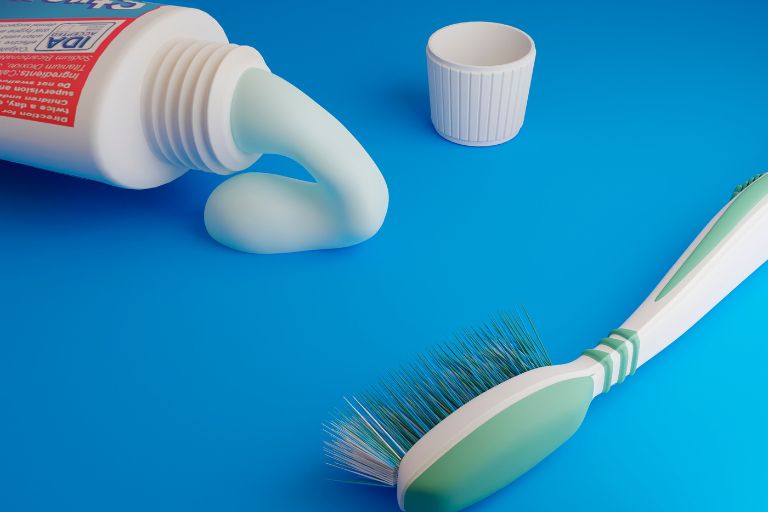Yes, pregnancy can significantly impact your oral health. Hormonal changes during pregnancy can lead to gum disease, gingivitis, loose teeth, acid reflux, and even unusual cravings like Pica, all of which are harmful to your teeth and potentially dangerous to your unborn baby. Prioritising your oral hygiene routine during pregnancy is essential to protect both your health and your baby’s. Schedule a dental visit early, maintain consistent brushing and flossing, and avoid substances or habits that could harm your teeth or gums.
Congratulations! Your pregnancy is worth celebrating with a visit to your dentist.
Can I go to the dentist if I’m pregnant?
Yes! A thorough check-up and cleaning is important at the beginning of your pregnancy. Tell your dentist you’re pregnant and when the baby is due. Most dental procedures are safe during pregnancy. Fillings etc., are best done during your second trimester.
Things to avoid when pregnant
The most obvious are smoking, alcohol, and recreational drugs.
Not so obvious are over-the-counter drugs that you haven’t cleared with your doctor or pre-natal medical professional first, and some mouthwashes, make sure you use a non-alcohol version. Satisfy food cravings in moderation.
4 Reasons why pregnancy can be problematic for your oral health
- Gum Disease and pregnancy gingivitis
Your hormones are all over the place during pregnancy and can cause inflammation resulting in bleeding gums when you floss or brush. This is known as pregnancy gingivitis.
- Loose Teeth
Pregnancy hormones loosen ligaments, including those that hold your teeth in your jawbone. It’s not common but can happen. See your dentist straight away.
- Morning sickness and acid reflux
Acid reflux is highly acidic and can quickly erode the enamel on your teeth when you vomit. Pregnancy changes the way you react to foods and even food you used to like can cause acid reflux.
- Exhaustion
Pregnancy can be exhausting, and you may feel too tired to brush and floss. Not only that, but pregnancy can cause a gag reflex to the smell of toothpaste or even putting floss or the brush into your mouth.

5 Steps to great oral care during your pregnancy
An elevated oral care program will benefit both you and your baby.
- Drink plenty of water
You should be doing this anyway as it flushes away food particles and acid from your teeth. - Floss
The best time to floss is after you’ve eaten something. Options include ordinary floss, a water flosser, or an interdental brush. - Brush
Use a small headed, soft-bristled brush after eating, snacking, or a bout of morning sickness, rinse your mouth out first. You may find the size of a child’s brush a good way to avoid the gag reflex and can help you develop gentler brushing habits as well.
- Rinse
Water – The least reactive option in terms of the gag reflex.
Salt water rinse – Removes bacteria and germs.
Commercial mouthwash – There are a number of excellent, gentle, and effective mouthwashes available. Oral B has some excellent solutions. Make sure you choose alcohol-free, antibacterial, mouthwashes that are also free of artificial colours and flavours. Alcohol can make your mouth dry and irritate your gums. Anti-bacterical mouthwashes reduce plaque preventing gum disease – look for ingredients such as cetylpyridinium chloride.
- A healthy diet
Limit your odd food cravings and sugary treats.
- Exercise
Steady exercise is a must at any time, but especially during pregnancy.
Don’t rely on old wives’ tales during your pregnancy. The right advice can only come from your health care professionals, including your dentist.
If you have any questions about how best to take care of your teeth during your pregnancy, contact us on 0508 TEAM DENTAL and make an appointment today to discuss this in more detail.
FAQs:
Q1: Why does pregnancy increase the risk of gum disease?
Hormonal changes during pregnancy can make your gums more sensitive and prone to inflammation. This often leads to pregnancy gingivitis, which can cause swelling or bleeding when you brush or floss. Maintaining a good oral care routine and visiting your dentist early in pregnancy can help prevent gum disease from progressing.
Q2: Is it safe to get dental treatments while pregnant?
Yes. Routine check-ups and cleanings are safe and recommended during pregnancy. Let your dentist know you are pregnant and your due date so they can plan your care accordingly. Most dental procedures, including fillings, are best done in the second trimester when it is generally safest and most comfortable for expectant mums.
